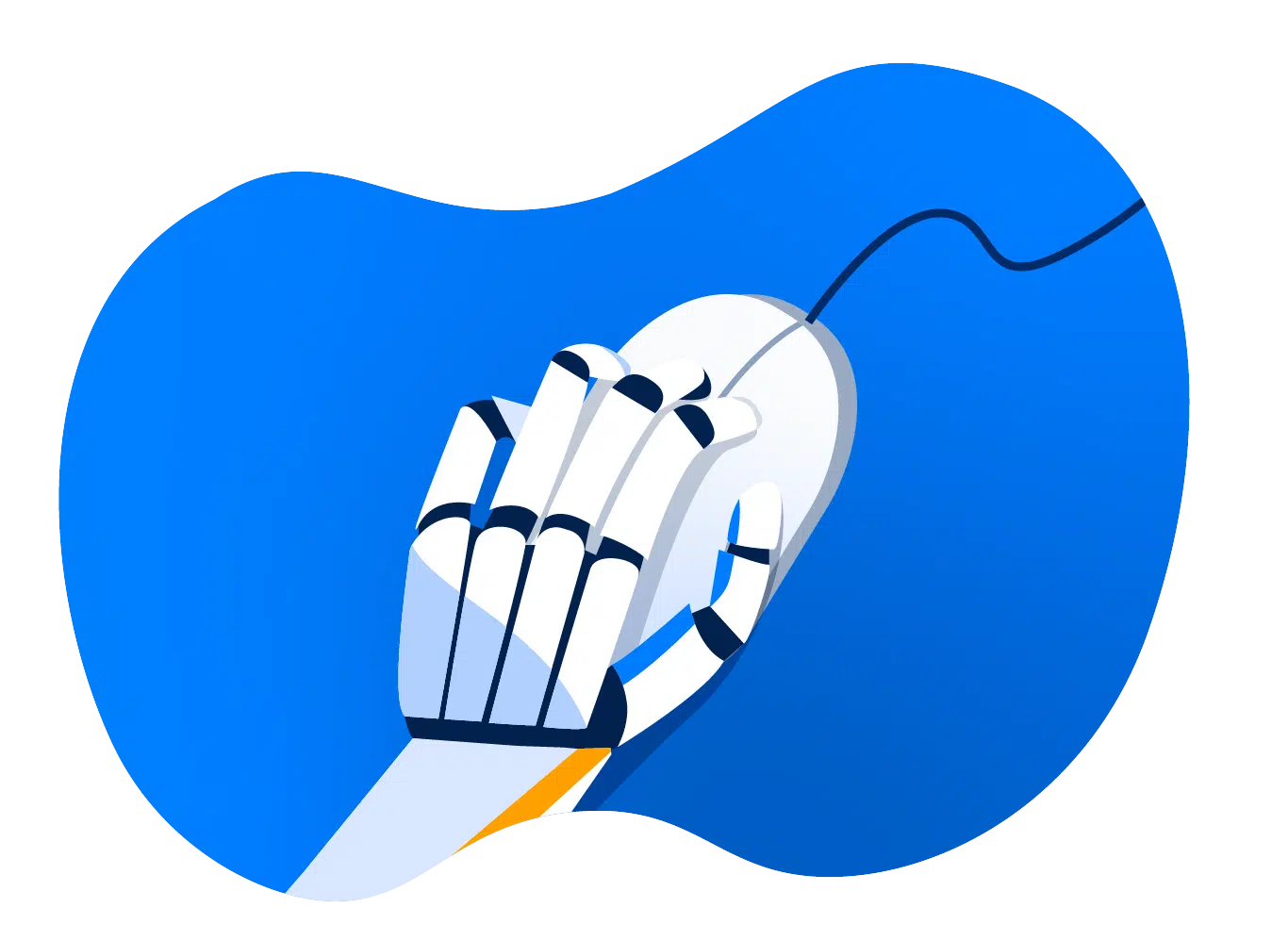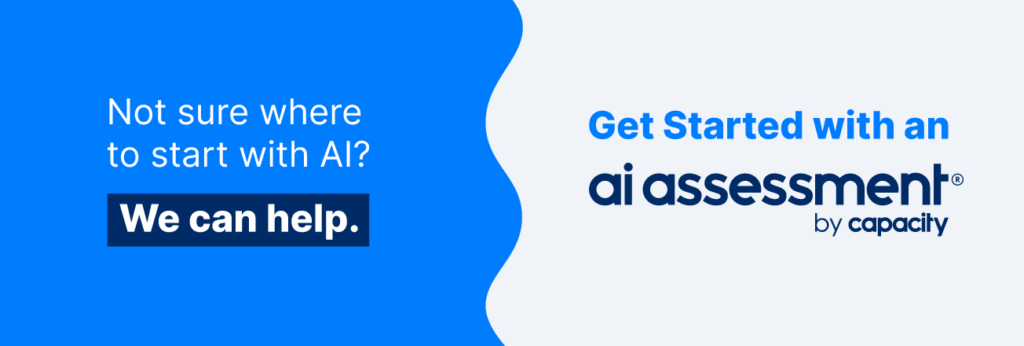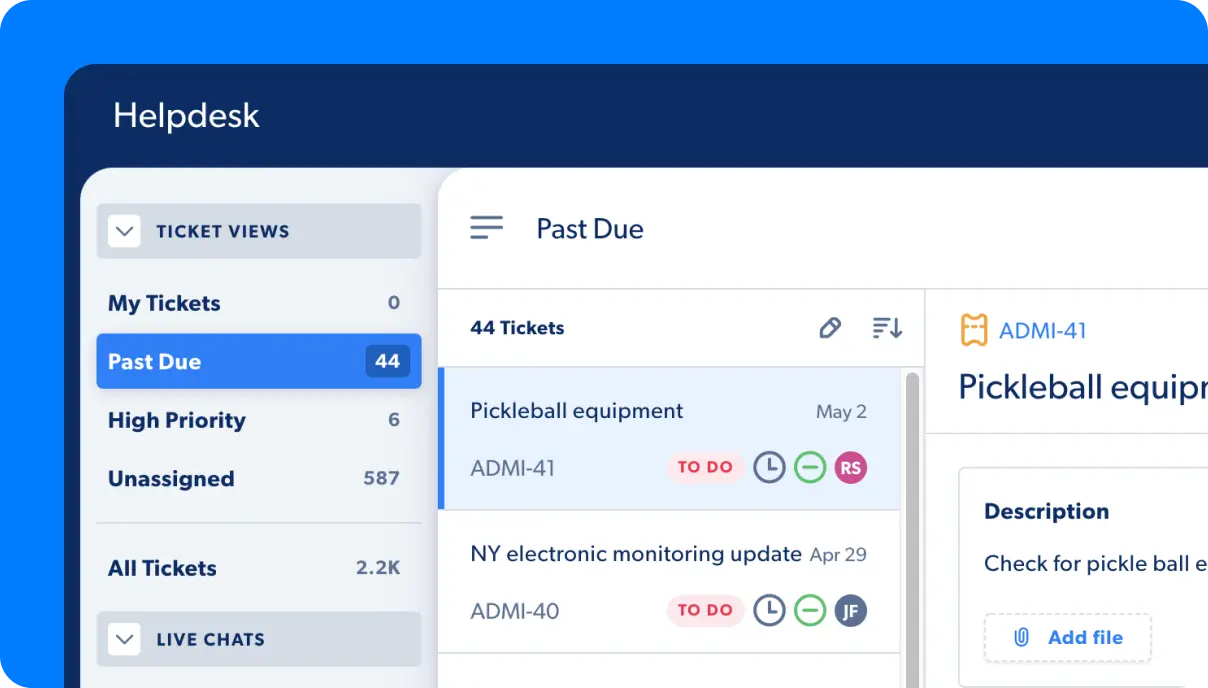Customer expectations are higher than ever. More companies are investing in helpdesk technology to meet rising customer expectations. We live in a culture of instant gratification. And customers expect speedy help as a result. Over 52% of consumers expect a response from a brand within just one hour. Plus, they’ll reward you for speed when you meet their expectations. Forrester has found that customers are 2.4 times more likely to stick with a brand when their problems are solved quickly. Therefore, a helpdesk is one of the most important customer service components. So, you need the right people to manage and maintain your helpdesk. But what exactly are helpdesk roles?
A helpdesk role provides front-line customer service and technical support to customers. Helpdesk roles take on tasks like answering customer inquiries, troubleshooting technical issues, creating support documents, and managing customer accounts.
These roles are essential for providing fast and effective service to customers. Let’s dig into what your help desk roles should look like for your business.
What is a typical day like in IT/help desk support roles?
As you might expect, the typical day of an IT/helpdesk professional will vary quite a bit. That said, an IT/helpdesk team’s workday will be similar across industries. A helpdesk team has to:
- Review new and updated tickets.
- Schedule repairs/updates for internal users needing IT help.
- Update and complete resolved tickets.
- Reply to direct messages and emails from internal users (co-workers).
- Perform routine system checks, maintenance, and updates on organizational systems.
That’s a lot to juggle, so the key to having a well-oiled support team starts with the help desk administrator.

What is a helpdesk administrator?
Helpdesk administrators handle system support activities for their company. Simply put, they have to keep customers happy and help fellow employees be productive. Helpdesk administrators often tackle the following:
- Analyze helpdesk performance and suggest improvements.
- Monitor customer service and technical support requests.
- Supervise the handling of tickets within the helpdesk system.
- Develop strategies to improve customer satisfaction through the IT department or help desk.

What are the 10 most common help desk roles?
There are a lot of different names for customer service roles, and depending on their rank, the responsibilities vary. So, let’s explore some of the more common customer service roles along with how to tell them apart:
Chief customer officer (CCO)
The Chief Customer Officer (CCO) is a new job becoming more popular. The CCO works with the executive team to develop ways to improve customer experience.
VP of Client Success
This position oversees all customer service operations. Thus, this job includes major company initiatives like increasing customer retention.
Customer service supervisor
Customer service supervisors help to oversee junior customer service representatives. They may also take an active part in the hiring process. A supervisor helps to choose and interview potential customer service candidates. Later on, they also help with training new team members.
Customer service manager
Customer service managers oversee customer service teams. Chiefly, they’re in charge of ensuring new service agents are adequately trained for success. They also track team performance and manage disagreements between customers and service reps.

Automate Your Work
Capacity’s enterprise AI chatbot can help:
- Answer FAQs anytime, anywhere
- Find relevant documents within seconds
- Give surveys and collect feedback
Customer support engineer
Customer support engineers are invaluable when troubleshooting product or service issues. They dive deep into a product problem, determine its source, and then formulate a plan that effectively resolves it. Moreover, they create detailed reports about unresolved issues to keep the team in the loop.
Customer support representative
Customer support representatives help customers with questions or product issues. Also, support reps often help with installation, troubleshooting, maintenance, and product upgrades.
Customer service representative
Customer service reps answer customers’ questions about a company’s products/services, policies, and procedures. They resolve issues, take orders, handle returns, respond to complaints, and proactively provide information. Often, service reps have a certain number of emails or calls they must hit daily.
Customer support manager
Customer support managers are responsible for the customer support department. They train new customer support representatives and ensure the quality of customer support. They deliver best practices, Knowledge Base content, and methodologies.
Customer success manager
A customer success manager’s job is to help a customer have a good experience with a product or service. They do this by helping the customer use the product in the best way possible. A success manager owns the customer relationship. Their role aims to retain customers and build loyalty to drive upsells.
Customer experience manager
Customer experience managers own customer experience. They look at the whole customer journey to determine what customers need each step of the way. With a streamlined CX, customers will keep coming back.
Helpdesk Certifications
When searching to fill helpdesk roles, you need a team that knows helpdesk best practices. There are various certifications for helpdesk professionals. But we’ve identified the top 3 that teach a solid combination of hardware, software, and customer service skills.

Look for a helpdesk admin with the following certifications:
Systems and network administration
Systems and network administrators oversee the daily operations of an organization’s computer systems. They manage intranets, local area networks (LANs), and wide area networks (WANs).
Information technology and support technician
An IT specialist helps companies or clients with software or hardware support needs.
Systems engineering
Systems engineering encompasses a wide range of disciplines. This certification is essential to support a helpdesk, from software development to systems development and maintenance.
Where to get helpdesk certifications
Helpdesk certifications are available at universities and community colleges. But your team can also get certified online. If you don’t want to hire a fresh helpdesk role, you can help your team learn how to support the tech. We’ve compiled a list of popular training courses to get you started. Be on the lookout any one of these certifications:
HubSpot Academy
HubSpot offers online training to sharpen the skills of support teams using helpdesk software. In HubSpot’s course, representatives learn how to set up their service hub to use your company’s new support software well.
ITIL Foundation
This popular training course teaches mastery of customer support fundamentals and helpdesk tools. Offered by Axelos, it helps your support agents understand and perfect ITIL best practices. You’ll be driving a superior IT service experience in no time. Your team can complete this course online or in person.
Google IT Support
Your team may not have an IT background, or their customer service skills are rudimentary. That’s ok. Google’s IT Support course teaches the fundamentals that will get them up and running. This way, they can take their helpdesk careers a step further.
CompTIA A+
This popular online training provider teaches registrants advanced IT and customer service skills. One of its strongest features is the security lesson, which advises your support team on handling and securing valuable data.
Network+
Also offered by CompTIA, this course teaches how to troubleshoot network problems. Your team will learn how to prevent faulty connections and security flaws. Learn how to keep your assets running if a network issue arises.
Udemy IT Helpdesk Professional
This advanced training course equips customer service and IT personnel to overcome common issues in their respective roles. Subjects include operating system installation and application security analysis.
Microsoft IT Support
Based on Microsoft products and applications, this training addresses the basics of IT and customer support. It will be beneficial if your company uses Microsoft tools extensively.
HDI-CSR
This online course emphasizes the customer service aspect of helpdesk support. Your tech teams must learn these skills if they are transitioning to external support roles. There is also live classroom training available.

Is it necessary to become certified?
Helpdesk roles don’t need certifications to be successful. But this added step creates value for your company. Training and career development certification will build retention on your team. You want each agent to have extensive hard and soft skills to resolve employee and customer issues.
With the right helpdesk skills on your team, how do you build an entire support team?
How do I put together a customer support team?
Daunting as it might sound, building out a customer support team starts with a few questions. Think through the list below, and your customer support team will be thriving in no time:
- Define the mission. What ultimate purpose does your customer support team exist to serve?
- What skills and personality traits are best suited to deliver on said mission?
- What internal and external issues will your team likely face?
- What help desk tools can you arm them with to respond to incoming problems?
- Which metrics will you monitor to determine your team’s wins and losses?
Once you answer these questions, you’ll have the framework to build a prepared, goal-driven team.
Help desk roles and the future of customer service
The helpdesk role is changing with the introduction of new technologies. With a team prepared with both soft and hard technical skills, you’ll be more prepared to face the changes ahead. Today, an effective helpdesk offers omnichannel support with seamless phone, email, live chat, and SMS support. So your team will need to be trained in each channel uniquely.
AI chatbots and automation tech is also revolutionizing how support teams work. There are a lot of benefits to automation. Automation enables you to handle more support tickets faster and with fewer resources than ever before. But an automated helpdesk requires its own set of processes and maintenance.
Consider what a helpdesk role looks like for your team. How will you plan to extend your existing platforms to meet customer expectations? Don’t stress. You’re not alone! We’re here to help.

This post was originally published on February 24, 2023, and was updated on May 24, 2024














































